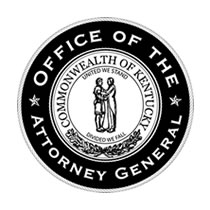 A new training effort aimed at helping hospital employees provide victim-centered care to survivors of sexual assault was launched yesterday by Attorney General Andy Beshear, the Kentucky Association of Sexual Assault Programs (KASAP) and the Kentucky Hospital Association.
A new training effort aimed at helping hospital employees provide victim-centered care to survivors of sexual assault was launched yesterday by Attorney General Andy Beshear, the Kentucky Association of Sexual Assault Programs (KASAP) and the Kentucky Hospital Association.
The new one-hour training video is for emergency room staff and hospital employees who respond to victims of sexual assault. The training includes an overview of survivors’ rights, the role of rape crisis advocates, legal requirements for hospitals under the Sexual Assault Forensic Exam (SAFE) Act and Kentucky law and dos and don’ts for conducting an exam in a victim-centered manner, which seeks to minimize retraumatization associated with the criminal justice process.
“We want to ensure that when survivors come forward to seek a sexual assault exam, they receive a trauma-informed, victim-centered response, which we know is a critical first step along a survivor’s path to healing and justice,” Beshear said. “The Kentucky Association of Sexual Assault Programs and the Kentucky Hospital Association have been tremendous partners in our collaborative effort to enhance victim services in Kentucky.”
It is estimated that one in two women and one in 16 men in Kentucky will experience sexual violence. In June 2018, Beshear announced his office wanted to better serve victims and provided KASAP with $30,000 in drug settlement funds to create and administer a statewide training program to fill gaps in the state’s SAFE kit response.
Eileen Recktenwald, executive director of the Kentucky Association of Sexual Assault Programs said, “Undergoing a sexual assault forensic exam can be daunting and painful, but it can also help survivors who are just beginning a long journey of healing. All victims deserve swift, compassionate, trauma-informed care when they walk into an emergency department in the aftermath of a sexual assault. We hope this video, produced in consultation with doctors and nurses, helps health care professionals understand their legal responsibilities and provide high quality, victim-centered care.”
According to Recktenwald, while the regional rape crisis centers currently provide certification training for sexual assault nurse examiners (SANE), the new training will inform a broader scope of hospital employees across all hospitals, rural and urban.
The SAFE Act of 2016 ensures the submission of all SAFE kits, requires police receive training to conduct victim-centered sexual assault investigations and sets timelines for testing kits.
Kentucky law also requires all hospitals that offer emergency services to provide a free sexual assault forensic exam to all victims and contact a local rape crisis center to provide advocacy. Hospitals must contact law enforcement to collect reported SAFE kits when a victim consents, and preserve all kits not reported to law enforcement for one year. Hospitals can also take steps to achieve a “SANE ready” designation, which are facilities that establish a readiness to provide constant response for sexual assault victims.
Donna Meador, director of quality and patient safety with the Kentucky Hospital Association said, “Our Kentucky hospitals demonstrate strong commitment to high quality and safe care, serving their communities with open doors all day, every day. The Kentucky Hospital Association is pleased to support this video as another educational resource for hospitals to use as they provide competent and compassionate care for victims of sexual assault.”
As part of Beshear’s work to support victims of sexual assault, his Office of Victims Advocacy created a first-of-its-kind Survivors Council in 2017 to give survivors a voice in Frankfort and to assist the office with victim issues and policies.
Hilary B. Sykes, current Survivors Council member said, “Hospitals play a vital role in survivors seeking justice. When hospitals know the rights of survivors, and how to perform a SAFE exam, it shows and the victim can feel it. You can make all the difference in how a survivor heals emotionally, physically and mentally. You hold the key for people to make it through this and feel like they have a chance at survival.”
Survivors Council Co-Chair, LaShana Harris said, “Hospitals are vital in the continuum of care for sexual assault survivors. An emergency room that has victim-centered services has a tremendous impact on the healing journey.”
Since taking office, Beshear’s Office of Victim Advocacy and his Department of Criminal Investigations have worked on many fronts with partners like KASAP and its 13 rape crisis centers, the Kentucky State Police (KSP) and local law enforcement and prosecutors to implement a victim-centered approach in Kentucky and seek justice for victims.
During his first year as attorney general, Beshear provided $4.5 million in settlement money to lawmakers to fund requested KSP crime lab upgrades and an additional $1 million from the settlement to aid law enforcement and prosecutors in conducting victim-centered investigations and prosecuting sexual assault offenders. In 2016, his office also hosted the first SAFE Summit and developed a Sexual Assault Law Enforcement Toolkit and SAFE Act Guide to help law enforcement address SAFE kit backlog investigations and prosecutions.
In 2017, Beshear transferred $45,000 of interest accumulated from the settlement to outsource more Sexual Assault Kits for testing and assist the KSP Crime Lab.
In 2018, Beshear established a sexual assault cold case unit from a three-year, nearly $3 million U.S Department of Justice, Bureau of Justice Assistance grant. The unit assists on cold sexual assault cases at every level with a victim advocate, investigator, prosecutor and coordinator.
Beshear’s office, local law enforcement and local prosecutors have now secured 10 statewide indictments linked to the SAFE kit backlog.
Kentucky is now only one of the few states that has tested every backlogged SAFE kit.
 Weather
Weather Traffic
Traffic @LouisvilleDispatch
@LouisvilleDispatch @LouisvilleDisp
@LouisvilleDisp Subscribe
Subscribe
Leave a Reply